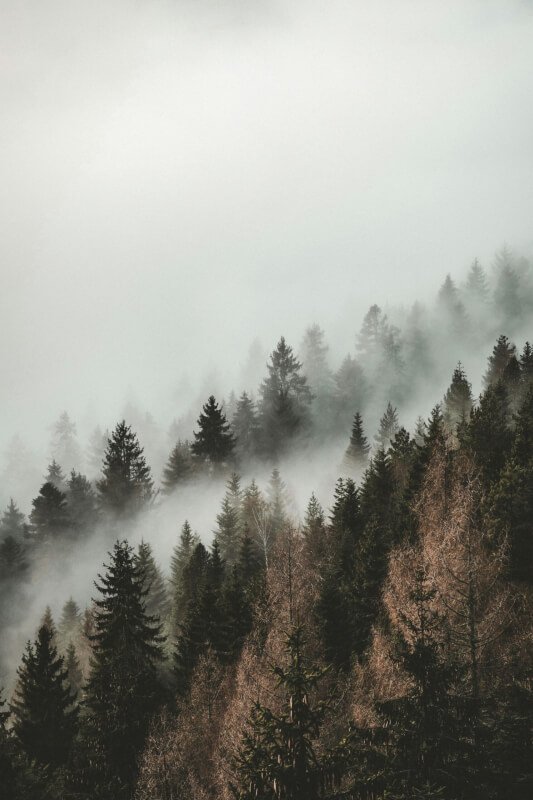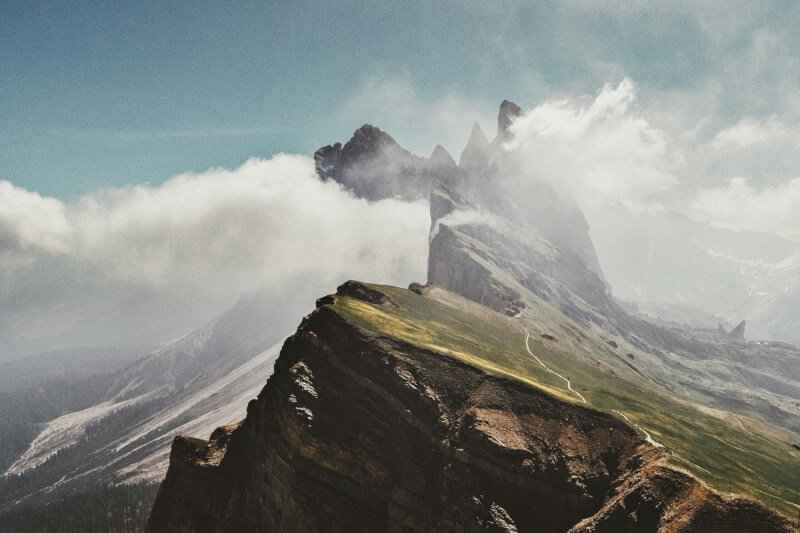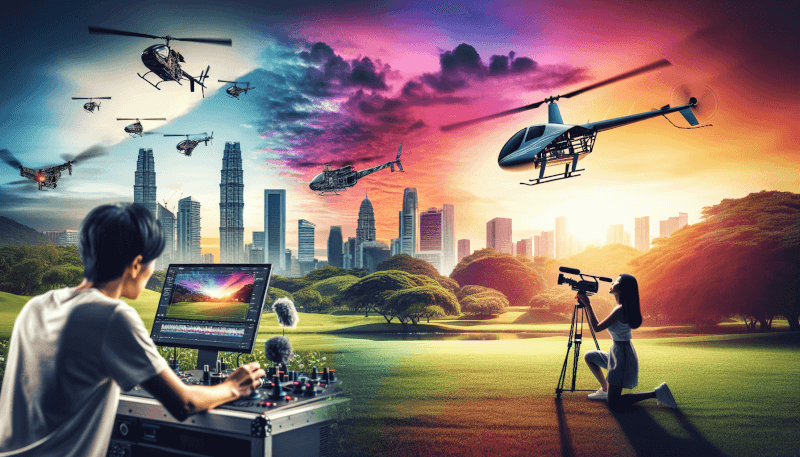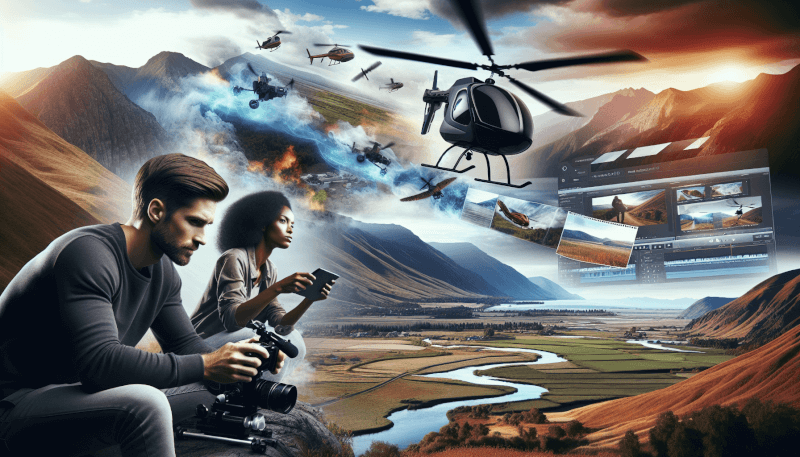Are you eager to capture stunning aerial footage and create jaw-dropping RC helicopter videos? Look no further! In this article, you will discover a wealth of valuable tips and techniques that will elevate your video-making skills to new heights. From choosing the right RC helicopter to mastering aerial cinematography techniques, these tips will ensure that your videos are nothing short of awe-inspiring. So, get ready to take your videography game to the next level and mesmerize your audience with breathtaking RC helicopter videos!
Equipment
Choose the Right RC Helicopter
When it comes to capturing stunning aerial footage, it’s essential to choose the right RC helicopter. Look for a model that offers stability, maneuverability, and a good camera mount. Consider factors such as flight time, battery life, and range. Research different options and read reviews to ensure you make an informed decision.
Invest in a Quality Camera
Investing in a quality camera is crucial for capturing high-resolution videos. Look for a camera that offers features such as 4K resolution, image stabilization, and a wide dynamic range. Consider the camera’s ability to handle different lighting conditions and its compatibility with your RC helicopter. Remember, a good camera can make a significant difference in the overall quality of your videos.
Consider Additional Accessories
To enhance your RC helicopter videography skills, consider investing in additional accessories. Some useful accessories include extra batteries for prolonged flight time, a memory card with ample storage capacity, and lens filters to control light and reduce glare. Additionally, a remote control with advanced features and a smartphone holder can provide better control and flexibility while filming.
Flight Planning
Location Scouting
Finding the perfect filming location is essential for creating stunning RC helicopter videos. Look for areas with beautiful scenery, interesting landmarks, or unique perspectives. Research local regulations and restrictions and ensure you have permission to fly in the chosen location. Take into account factors like wind conditions, visibility, and potential obstructions.
Prepare a Flight Path
Before taking off, it’s important to plan a flight path for your RC helicopter. This will help you capture the desired shots and ensure safe navigation in the sky. Determine the key points of interest you want to film and map out a route that encompasses those locations. Having a well-planned flight path will result in a more organized and visually appealing video.
Check for Obstacles
While planning your flight, make sure to check for potential obstacles that may hinder your ability to capture great footage. Look for power lines, trees, buildings, or any other objects that could pose a risk to your RC helicopter. It’s important to be aware of your surroundings to prevent accidents and damage to your equipment.

Camera Settings
Ensure Proper Exposure
Proper exposure is essential to capture well-lit and visually appealing videos. Adjust the exposure settings of your camera to prevent overexposed (too bright) or underexposed (too dark) footage. Use the camera’s histogram and live view display to monitor the exposure levels and make adjustments accordingly. Experiment with different exposure settings to find the perfect balance for your specific filming conditions.
Use the Right Shutter Speed
Shutter speed plays a crucial role in capturing sharp and blur-free footage. Choose a fast shutter speed, especially when filming fast-moving subjects or during high-speed maneuvers. A faster shutter speed reduces motion blur and results in clearer, more defined footage. However, be mindful that increasing the shutter speed may reduce the camera’s ability to capture a sufficient amount of light, so find the right compromise for your filming conditions.
Adjust White Balance
White balance determines the overall color temperature of your videos. Different lighting conditions can cast a warm or cool tone on your footage. Adjusting the white balance setting on your camera will ensure accurate color representation. Use presets for daylight, cloudy, or indoor lighting, or experiment with manual white balance settings to achieve the desired look for your videos.
Composition
Use the Rule of Thirds
The rule of thirds is a basic principle of composition that helps create visually pleasing and balanced shots. Imagine dividing your frame into a 3×3 grid, both horizontally and vertically. Place your subject or points of interest along these grid lines or at their intersections to create a more engaging and dynamic composition. By following this guideline, you can add depth and visual interest to your RC helicopter videos.
Experiment with Angles
Varying your camera angles is an effective way to add depth and perspective to your videos. Experiment with different shooting angles and viewpoints to capture unique and visually stunning footage. Consider capturing low-angle shots to emphasize the size and scale of your subject, or try aerial shots from higher altitudes to showcase the surrounding landscape. Don’t be afraid to get creative and think outside the box!
Include Point of Interest
To create engaging RC helicopter videos, include interesting points of interest in your shots. Whether it’s a picturesque landscape, a dynamic moving object, or a unique architectural structure, adding a point of interest helps capture viewers’ attention. Frame your shots to highlight the subject and make it the focal point of the video. Including a point of interest adds visual interest and makes your videos more memorable.

Smooth Movements
Practice Controlled Movements
To capture smooth and cinematic footage, practice controlling your RC helicopter’s movements. Gradually and smoothly maneuver the helicopter, avoiding sudden jerks or abrupt changes in direction. Practice slow and precise movements to achieve buttery-smooth footage. Take advantage of your RC helicopter’s built-in stabilization features to minimize any unwanted vibrations or shaking.
Use Stabilization Systems
Consider utilizing additional stabilization systems to further enhance the smoothness of your shots. Gimbal stabilizers are specifically designed to minimize camera shake and vibrations, resulting in professional-looking footage. Depending on your RC helicopter and camera setup, you can invest in either a three-axis or two-axis gimbal stabilizer. These systems will significantly improve the overall stability of your videos.
Avoid Abrupt Transitions
When capturing footage with your RC helicopter, aim for seamless transitions between shots. Avoid abrupt changes in camera position, speed, or direction. Smoothly transition from one shot to another, utilizing graceful movements and well-planned framing. By maintaining a consistent flow throughout your video, you’ll create a more enjoyable viewing experience for your audience.
Visual Effects
Experiment with Slow Motion
Slow-motion footage can add drama and impact to your RC helicopter videos. Experiment with different frame rates to achieve the desired slow-motion effect. Higher frame rates, such as 60 or 120 frames per second, will allow you to capture smooth slow-motion footage. Use slow motion strategically to highlight specific moments, such as a graceful maneuver or a close-up shot.
Try Time-lapse Shots
Time-lapse shots can showcase the passage of time in a visually captivating way. Set your camera to capture still images at predetermined intervals, and then compile those images into a video. Time-lapse shots are an excellent way to capture sunrise or sunset, clouds moving across the sky, or any other gradual changes over an extended period. Experiment with different intervals to achieve the desired effect.
Use Filters and Color Grading
Filters and color grading can transform the visual aesthetics of your RC helicopter videos. Experiment with different filters to achieve specific looks, such as enhancing the vibrancy of colors or adding a vintage film effect. Additionally, consider post-production color grading to fine-tune the overall color palette and create a cohesive visual style for your videos. Filters and color grading can greatly enhance the cinematic quality of your footage.

Editing Techniques
Trim and Delete Unnecessary Footage
During the editing process, go through your footage and trim out any unnecessary or repetitive shots. This will help keep your video concise and engaging. Delete any footage that doesn’t contribute to the storyline or visual appeal of the video. Removing excess footage will also make it easier to refine the pacing and maintain a cohesive narrative.
Add Transitions and Sound Effects
Adding transitions between shots can create a smooth flow and enhance the overall viewing experience. Experiment with different transition effects, such as fades, dissolves, or wipes, to create seamless connections between your footage. Additionally, consider adding sound effects to complement the visuals and create a more immersive experience for your viewers. Choose sound effects that enhance the overall mood and atmosphere of your video.
Use Keyframe Animations
Keyframe animations allow you to add movement and visual interest to your RC helicopter videos. By adjusting keyframes at specific points in your footage, you can create smooth camera movements, zoom effects, or even simulate 3D movements. Experiment with different keyframe animations to add dynamic elements to your video and make it more visually captivating.
Sound Design
Capture High-Quality Audio
Good audio quality is just as important as the visuals when it comes to creating impressive RC helicopter videos. Invest in a high-quality external microphone to capture clear and crisp audio. This will ensure that the sound of your videos matches the high standard set by your visuals. Consider using a microphone with noise-cancelling capabilities to minimize unwanted background noise.
Add Background Music
Background music can greatly enhance the mood and emotional impact of your RC helicopter videos. Choose music that complements the visuals and adds an extra layer of depth and engagement. Consider the pacing, tempo, and genre of the music, as it should align with the overall tone of your video. Use royalty-free music or obtain the necessary licenses to avoid copyright issues.
Sync Audio and Visuals
When editing your RC helicopter videos, ensure that the audio and visuals are in sync. Align the key moments of your footage with the corresponding audio cues to create a seamless viewing experience. Adjust the timing of the footage and audio tracks as needed to maintain synchronization. A well-synced video will help immerse your viewers in the action and enhance their overall enjoyment.

Post-Processing
Color Correction and Enhancement
During the post-processing stage, pay attention to color correction and enhancement. Adjust the color balance, contrast, and saturation levels to achieve a visually appealing look. This step will ensure that your videos appear vibrant and well-balanced. Take the time to fine-tune the colors to match your desired aesthetic and create a cohesive visual storytelling experience.
Apply Filters and Effects
Applying filters and effects can elevate the visual impact of your RC helicopter videos. Experiment with different filter presets or create your own custom effects to add a unique touch to your videos. Consider using effects such as vignettes, lens flares, or light leaks to create a more cinematic atmosphere. Be mindful not to overdo it, as subtle enhancements often yield the most pleasing results.
Ensure Smooth Playback
Before finalizing your RC helicopter video, check the playback to ensure smooth and uninterrupted viewing. Render your video in the appropriate format and resolution for optimal playback on different devices and platforms. Test the video on various devices, including smartphones, tablets, and computers, to ensure compatibility and smooth playback across different platforms.
Safety Precautions
Follow Local Regulations
Prioritize safety by familiarizing yourself with the local regulations and guidelines for flying RC helicopters. Ensure that you are aware of any restricted areas or no-fly zones to avoid potentially dangerous situations. Follow all guidelines regarding flight altitude, distance from people or structures, and any other specific rules set by the local authorities.
Maintain Safe Distances
When flying your RC helicopter, maintain safe distances from people, buildings, and other obstacles. Adhering to safe distances will prevent accidents and minimize the risk of damage or injury. Always be mindful of your surroundings and fly responsibly to ensure the well-being of yourself and others around you.
Perform Regular Maintenance
Regularly maintaining your RC helicopter is crucial for optimal performance and safe operations. Inspect your equipment before each flight to ensure everything is in working order. Check the batteries, propellers, and any other components for any signs of wear or damage. Following recommended maintenance procedures will help prevent malfunctions and extend the lifespan of your RC helicopter.
Taking the time to understand and implement these tips will undoubtedly elevate your RC helicopter videography skills. By choosing the right equipment, planning your flights, mastering camera settings, and incorporating visual effects and sound design, you can create jaw-dropping videos that captivate and mesmerize your audience. Remember to prioritize safety at all times and continuously refine your skills through practice and experimentation. Happy filming!



